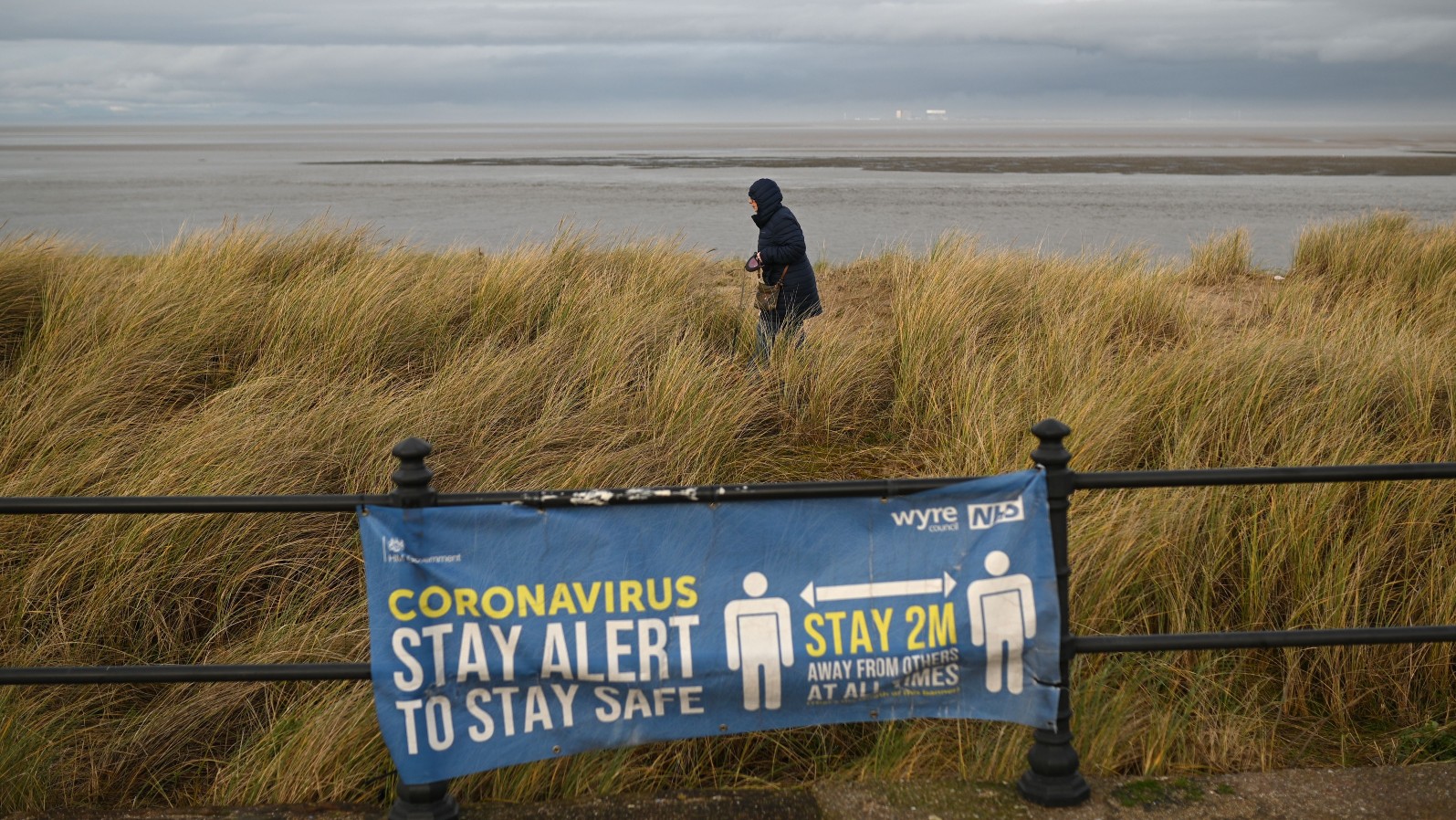Lockdown study reveals how mental fatigue can be reversed
Psychologists have had a unique opportunity to study the effects of social isolation

A free daily email with the biggest news stories of the day – and the best features from TheWeek.com
You are now subscribed
Your newsletter sign-up was successful
Psychology lecturers Christopher Hand, Greg Maciejewski and Joanne Ingram on cognitive decline.
Many of us are looking forward to a summer of relative freedom, with road-mapped milestones that will grant us more opportunities to see our friends and family. But we’ll be carrying the effects of months of isolation into those meetings, including a sense that our social skills will need dusting off, and our wits will need sharpening.
The mental effects of lockdown have been profound. Social isolation has been shown to cause people’s mental health to deteriorate even if they have no history of previous psychological problems. Alongside this drop in mood, loneliness has been linked with a host of cognitive problems, including fatigue, stress and problems with concentration.
The Week
Escape your echo chamber. Get the facts behind the news, plus analysis from multiple perspectives.

Sign up for The Week's Free Newsletters
From our morning news briefing to a weekly Good News Newsletter, get the best of The Week delivered directly to your inbox.
From our morning news briefing to a weekly Good News Newsletter, get the best of The Week delivered directly to your inbox.
In our recent study, we set out to understand how people recovered from last year’s period of social isolation, tracking their cognitive function as the UK transitioned from a full lockdown to reduced social restrictions in summer 2020. Promisingly, we found that people swiftly recovered from cognitive issues when given the chance to blow away the cobwebs by socialising once again.
Mass isolation
Lockdowns have given psychologists a unique opportunity to study the effects of social isolation on the general population. Such effects are normally only studied in older adults, or in very special groups of people such as astronauts, desert trekkers and polar explorers. But for over a year now, ordinary people of all ages have been experiencing prolonged periods with minimal social contact.
We know that humans derive many benefits from socialising. These range from preventing dementia and enhancing memory to improvements in concentration and the ability to think clearly. When our social lives shrank last March, we lost these cognitive payouts too.
A free daily email with the biggest news stories of the day – and the best features from TheWeek.com
To investigate what happens when these payouts return, we surveyed hundreds of Scottish adults between May and July 2020: a period when strict national lockdown restrictions were gradually eased. It was the perfect time to observe how the benefits of socialising might change how people think and feel.
Unsurprisingly, we found that people’s moods were lowest when we first approached them in May. Those who were shielding or living alone suffered the most and only began to feel better when the final restrictions were eased towards the end of our survey period in July. But our study was most interested in other psychological indicators: those that would show whether people’s cognitive abilities improved when they had more opportunities to socialise.
Psychological recovery
To measure this, we asked our survey participants to complete a series of online tests to assess changes in their attention, learning ability, working memory – and even their perception of time.
Attention, learning ability and working memory are all essential for tasks we might perform at work or while studying. They’re indicators of how well we remember things we’ve learned, how long we can concentrate on a task, and how many tasks we can juggle in our heads at one time.
All of these indicators improved rapidly as lockdown restrictions eased, with clear week-on-week improvements each time we returned to our study participants for more data. This suggests that we’re likely to enjoy a similarly speedy boost in our ability to work when lockdown restrictions ease this time around.
We’ve all been experiencing varying degrees of loneliness and isolation, so it’s no wonder that we’re running low on the benefits that socialising can bring. Our findings offer concrete proof that lockdown makes us all a little more distracted, sluggish and fatigued – cognitive problems that may be affecting our performance at work and our social interactions outside of it.
But the speed at which we witnessed cognitive function improve once people began socialising again last summer shows that there’s hope. As days lengthen, the weather improves, and society reopens, our study suggests that renewed social contact will quickly and thoroughly reverse any cognitive decline we’ve experienced during the most recent lockdown.
Our findings extend beyond the unique circumstances brought about by the pandemic. While there’s no denying that humans are social creatures, psychologists are only now beginning to recognise just how integral social interaction is to every aspect of our wellbeing and mental ability – and how isolation, whether for elderly people or those with extreme vocations, can affect our mental health and aptitude across so many measures.
Christopher Hand is a lecturer in psychology at Glasgow Caledonian University, Greg Maciejewski is a lecturer in psychology at the University of the West of Scotland and Joanne Ingram is a lecturer in psychology at the University of the West of Scotland.
This article is republished from The Conversation under a Creative Commons license. Read the original article.